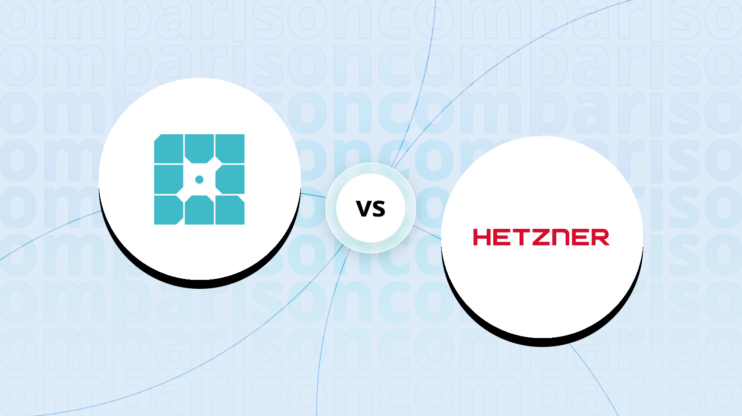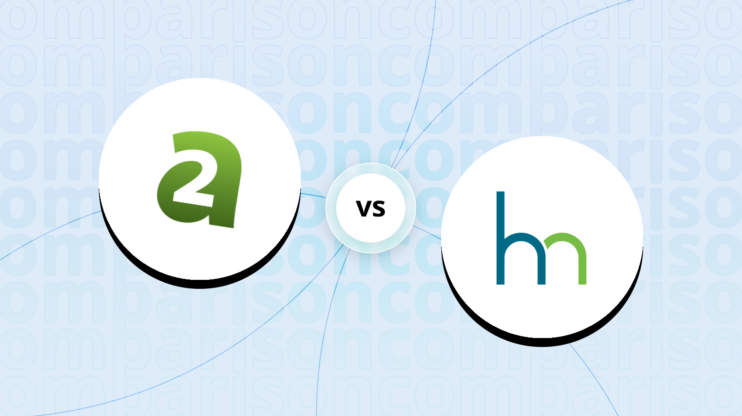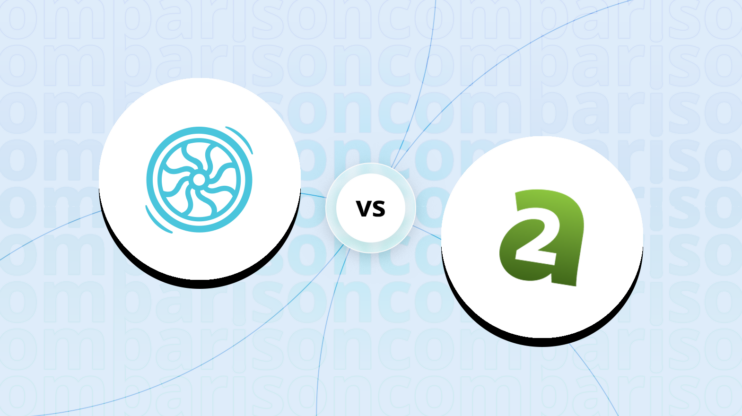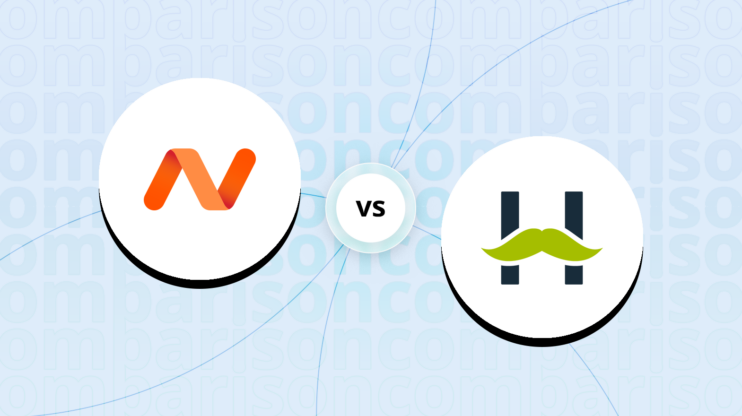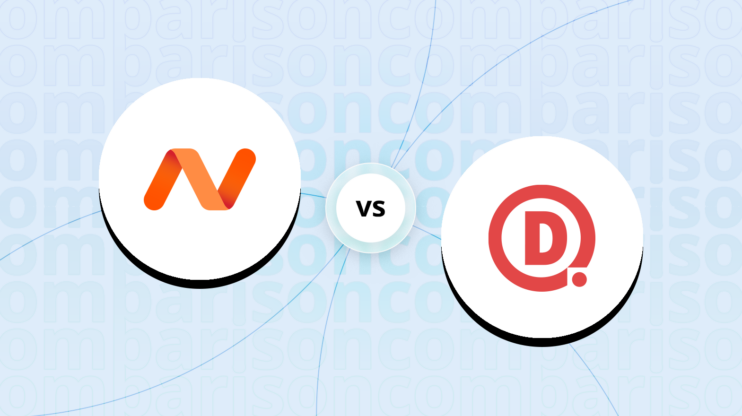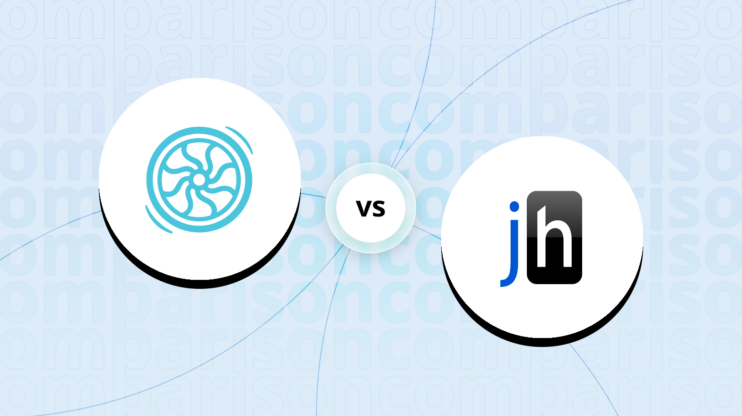Flywheel vs Interserver: Final verdict
Looking over Flywheel vs. InterServer, Flywheel delivers a more tailored solution for managed WordPress hosting, while InterServer shines in versatile hosting options.
-
Flywheel (Overall grade: 8.4)
provides superior uptime and performance, specializing in managed WordPress hosting. Its outstanding 100% uptime in monitored test periods, swift 371ms response time, and global data centers ensure top-notch content delivery. Flywheel’s user interface is intuitive, with features like staging sites, site cloning, and local development environments. Despite its higher cost and lack of email hosting, Flywheel excels in advanced security measures, compliance certifications, and powerful speed optimizations.
-
InterServer (Overall grade: 8.1)
offers a broader range of hosting solutions, including shared, VPS, and dedicated hosting. It delivers strong security with its InterShield system and machine learning firewall. With a solid 99.99% uptime and features like unlimited storage and bandwidth, InterServer appeals to users needing flexible, scalable solutions. Though reliant on traditional control panels, its pricing is straightforward and competitive. InterServer’s 24/7 support and comprehensive features, including email hosting, make it a good choice for those looking for an all-in-one platform.
 Overall grade:8.4 |
 Overall grade:8.1 |
|
|---|---|---|
| Uptime and Availability | 9.7 | 8.7 |
| Hosting Performance | 8.2 | 8.2 |
| Hosting Security | 9.4 | 8.3 |
| Price | 8.1 | 8.1 |
| Hosting Features | 6.8 | 6.2 |
| Ease Of Setup | 8.9 | 8.7 |
| User Management | 7.8 | 7.4 |
| Customer Support | 8.5 | 9.0 |
| User feedback | 4.4/5 | 4/5 |
Hosting types offered
Both platforms provide a variety of hosting types, each designed to meet the different needs of users.
 |
 |
|
|---|---|---|
| Shared hosting | ||
| Cloud hosting | ||
| WordPress hosting | ||
| Ecommerce hosting | ||
| VPS hosting | ||
| Dedicated hosting |
Although both offer a variety of hosting plans tailored to different needs, in
certain cases, one platform may prove to be more suitable.
Detailed comparison
Uptime and availability
Evaluates the average uptime statistics, uptime guarantee and overall availability of the hosting
provider
Score Components:
- Uptime percentage (30%): evaluates the uptime statistics in given period of time
- Uptime guarantee (20%): Assesses if the platform offers an uptime guarantee and
whether the actual uptime matches the promised guarantee. - General performance (25%): Evaluates how fast is the average response time and overall
it’s stability. - Responsiveness (10%): Adaptability to different devices and screen sizes.
- Availability (25%): Reflects the total downtime and number of outages.
 9.7
9.7
 8.7
8.7
🏆 Winner
Flywheel: Offers superior uptime and performance.

Flywheel stands out with its exceptional 100% uptime in a monitored test period and a guaranteed 99.9% uptime backed by an SLA. Their response time is remarkably quick at 371ms, significantly better than the market average. With data centers spread across the US, Canada, the UK, Belgium, and Australia, Flywheel ensures that content delivery is fast and reliable globally.

InterServer also delivers a solid hosting service with a 99.99% uptime and an extensive security package. Their average response time is 662ms, supplemented by a global network through Cloudflare and inter-proxy caching mechanisms. Even though their sites are only in the USA, network optimization and Cloudflare CDN help in maintaining good global loading speeds.
Flywheel ranks higher due to better response times and widespread server locations.
Which one has better hosting performance?
Score Components:
- Hosting speed (30%): This includes SSD quality, Load times, PageSpeed score ranges,
additional information on website speed, built-in plugins for performance enhancement, available caching
methods, and CPU/RAM options - CDN (20%): Considers whether CDN is available or not, whether it’s free or paid, and
the quality of the CDN service - Available data centers (30%): Evaluates the number of data centers and their locations
globally. - Scalibility (20%): Looks at whether elastic scaling is available, the process required
to scale (manual upgrade vs. automatic scaling), the presence of dedicated servers, and the costs
associated with scaling.
 8.2
8.2
 8.2
8.2
🏆 Winner
Flywheel: For users who prioritize speed and advanced technological infrastructure, Flywheel is more suitable for high-demand websites that require reliable and fast global access.
Flywheel and InterServer both offer SSD storage and free CDN integration to enhance hosting performance and speed. Flywheel, however, showcases faster load times with a heavyweight theme clocked at 1.69 seconds, compared to InterServer’s 4.85 seconds. Flywheel operates 11 global data centers, which surpasses InterServer’s six, potentially offering better local loading speeds and content delivery. Moreover, Flywheel’s technology is more up-to-date, which may contribute to its superior performance.
Website Speed
Flywheel excels in website speed with an LCP time of 872ms, significantly outperforming InterServer’s 1.8 seconds. Although both fall within the acceptable range of LCP (up to 2.5 seconds is considered good), Flywheel’s website speed is notably better, indicating a more efficient user experience.
Scalability
Both hosting providers offer scalability options tailored to varying needs; however, Flywheel provides a more customized approach with its custom cloud plans where resources can be configured to user requirements. InterServer also offers a variety of hosting types, including shared and dedicated servers, with tiered pricing to accommodate different user levels.
Which one has better security features?
and regulatory requirements
Score Components:
- Technical security measures (40%): This includes encryption, firewalls, DDoS
protection, secure configurations, server monitoring, access control and availability of security addons
(e.g Sitelock security). - Operational security measures (30%): Encompasses data privacy, backups and data
redundancy. - Compliance and certifications (20%): Adherence to legal and regulatory requirements
(e.g., GDPR, HIPAA) and possession of certifications (e.g., ISO 27001, SOC 2). - Business and reliability (10%): Factors in the provider’s reputation, uptime
guarantees, and customer support.
 9.4
9.4
 8.3
8.3
🏆 Winner
Flywheel: An impressive array of advanced security features and comprehensive compliance measures.
Both Flywheel and InterServer, have notable differences in their approaches to technical and operational
security, as well as in their compliance with regulations.
Technical security measures:
Flywheel and InterServer both provide robust technical security. Flywheel uses a Web Application Firewall (WAF) and intelligent IP blocking to protect against various attacks. It also incorporates auto-healing technology and nightly backups for increased resilience. InterServer offers the in-house developed InterShield Security, which features machine learning firewall and virus scanning. It also employs brute-force protection and end-to-end encryption for emails. While both offer solid security, Flywheel’s free malware removal and plugin security alerts give it a noticeable edge.
Operational security measures:
Flywheel implements several operational security measures like role-based permissions, federated identity service, and provides free migrations with ongoing 24/7/365 support. InterServer also prioritizes operational security with features like spam filtering, guaranteed email delivery, and physical data center security. Their scope of support includes account cleanup and hardware self-healing capabilities. Flywheel’s role-based permissions and federated identity service provide a higher level of user management security.
Compliance and certifications:
Flywheel stands out with extensive compliance, covering HIPAA and GDPR along with 21 CFR Part 11, GCP, and SOC 2 certification. InterServer provides GDPR compliance but lacks explicit mention of HIPAA and PCI compliance. Flywheel’s broad range of certified standards makes it better suited for users requiring stringent regulatory adherence.
 |
 |
|
|---|---|---|
SSL certificate |
Free & Third-Party Support |
Free |
Additional security features |
WAF, Intelligent IP Blocking, etc. |
InterShield Security, Inter-Insurance |
PHP versions |
PHP 8.1 Ready |
Up to PHP 8.3 |
GDPR compliance |
Yes |
Yes |
HIPAA compliance |
Yes |
Not specified |
PCI compliance |
Not specified |
Not specified |
Hosting features
Score Components:
- Domains (20%): Assesses the availability of a free domain, domain purchase options, and
pricing - Email (15%): Considers if the provider offers full email hosting, or is reselling
third-party service, and if the email is only transactional or not - Website builder (15%): Checks if website builder is available, and it’s user
friendliness and overall the level of customization allowed. - Staging environment (20%): Determines if a staging environment is available, allowing
for testing changes before going live. - FTP & SFTP accounts (10%): Evaluates if and how easily users can access FTP and
SFTP accounts - Git and SSH access (20%): Assess whether Git is integrated into the hosting service and
if SSH access is provided
 6.8
6.8
 6.2
6.2
🏆 Winner Flywheel: A comprehensive managed WordPress hosting solution featuring advanced performance and support.
Flywheel and InterServer offer unique advantages tailored to different user needs. Flywheel emphasizes managed WordPress hosting with expert support and extensive workflow tools, including Blueprints for site templates and local development environments. Flywheel’s offerings come with managed caching, performance enhancements, and security, making it a robust choice for those prioritizing site speed and security. Flywheel also includes premium WordPress themes and the Genesis Framework, allowing users extensive customization options. However, Flywheel does not offer email accounts, recommending third-party services like Google Apps instead.
InterServer caters to users looking for broader hosting solutions with its unlimited storage, weekly backups, and Cloudflare CDN for faster site loading. An attractive feature is its unlimited FTP accounts, providing flexibility for developers. InterServer also offers standard and LiteSpeed servers for speed optimization. While it doesn’t explicitly mention SSH access, it does provide FTP and SFTP, making it suitable for most developers’ needs. InterServer’s pricing is more straightforward since it includes unlimited data transfer without the concern of overage charges, which could appeal to those needing predictable costs.
 |
 |
|
|---|---|---|
Free Domain |
Not Mentioned |
Yes |
Free SSL |
Yes |
Yes |
Email Hosting |
No |
Yes |
Website Builder |
Yes, via WordPress |
No |
Staging Environment |
Yes |
No |
FTP & SFTP Accounts |
Yes, SFTP & SSH |
Yes, FTP & SFTP |
Git and SSH Access |
Yes, SSH |
Not Mentioned |
Free Backup |
Yes |
Yes |
Money Back Guarantee |
Yes, 60 days (except Agency & Custom) |
Yes |
a location.
As a result in rare cases the features mentioned here can differ from the ones you see on their websites.
Both providers support a range of users from beginners to experts with user-friendly website builders and WordPress staging areas. However, in terms of developer tools, both Flywheel and InterServer offer robust options including SSH access, support for multiple programming languages, and Git for version control, thus appealing to developers looking for advanced capabilities.
Email services:
Flywheel does not offer email hosting services, instead recommending customers to use third-party providers like Google Workspace for their emailing needs. This could be seen as less convenient for users wanting an all-in-one hosting provider. On the other hand, InterServer offers email hosting services, making it simpler for users who prefer to manage their websites and email campaigns under a single platform. This can be particularly advantageous for businesses looking for a more streamlined approach to both their website and email management.
Price
Score Components:
- Plan value (40%): What each pricing tier offers.
- Transparency and clarity (30%): Clearness of pricing structures.
- Flexibility of plans (20%): Range of options to suit different budgets.
- Hidden costs (10%): Additional expenses not included in the plan.
 8.1
8.1
 8.1
8.1
🏆 Winner
InterServer: A versatile hosting provider that offers a wide range of plans with extensive features at competitive prices.
Evaluating the pricing of plans among various hosting providers can be complex due to their differing pricing and renewal strategies. Additionally, certain plans require annual commitments, which adds to the difficulty of making comparisons. The prices listed are based on monthly commitments; plans requiring annual commitments are indicated. Additionally, although some providers offer identical plans for WordPress and shared hosting, we have created separate tables for each to enhance clarity.
Flywheel offers WordPress-specific hosting plans with prices starting at $13/month for the Tiny Plan, which includes 1 WordPress site, 5GB storage, and 20GB bandwidth. On the higher end, their Agency Plan costs $242/month, supporting up to 30 sites with 50GB storage and 500GB bandwidth. In contrast, InterServer presents a more varied price range, with their entry-level Standard Web Hosting at $2.50/month offering unlimited storage, transfer, and websites. For those seeking Cloud VPS Hosting, InterServer provides plans starting at $6.00/month with 2GB RAM and 30GB SSD storage. InterServer’s extensive features, such as unlimited email and SSD enhanced servers, highlight its broad appeal across different hosting needs.
 |
 |
|---|---|
|
Tiny Plan $13/month
1 WordPress site, 5GB storage, 20GB bandwidth, chat support, free migrations, SSL certificates Value for price:7.5
|
WordPress Hosting 1 Core $6/month
Supports multiple WordPress sites, 30GB SSD storage, 2TB transfer, 2048MB memory, free migration, 24/7 support Value for price:8.0
|
|
Starter Plan $25/month
1 WordPress site, 10GB storage, 50GB bandwidth, chat support, free migrations, SSL certificates Value for price:8.0
|
WordPress Hosting 2 Cores $12/month
Supports multiple WordPress sites, 60GB SSD storage, 4TB transfer, 4096MB memory, free migration, 24/7 support Value for price:8.5
|
|
Freelance Plan $96/month
Up to 10 sites, 20GB storage, 200GB bandwidth, chat support, free migrations, SSL certificates Value for price:8.5
|
WordPress Hosting 3 Cores $18/month
Supports multiple WordPress sites, 90GB SSD storage, 6TB transfer, 6144MB memory, free migration, 24/7 support Value for price:9.0
|
|
Agency Plan $242/month
Up to 30 sites, 50GB storage, 500GB bandwidth, chat support, free migrations, SSL certificates Value for price:8.0
|
WordPress Hosting 4 Cores $24/month
Supports multiple WordPress sites, 120GB SSD storage, 8TB transfer, 8192MB memory, free migration, 24/7 support Value for price:9.2
|
|
Custom Plan Custom pricing
30+ sites, custom storage, custom bandwidth, dedicated support Value for price:9.0
|
WordPress Hosting 5 Cores $30/month
Supports multiple WordPress sites, 150GB SSD storage, 10TB transfer, 10240MB memory, free migration, 24/7 support Value for price:9.5
|
 |
 |
|---|---|
|
N/A
Value for price:N/A
|
Standard Web Hosting $2.50/month
Unlimited websites, unlimited storage, unlimited transfer, free SSL certificates, 24/7 support, free migration Value for price:9.5
|
 |
 |
|---|---|
|
N/A
Value for price:N/A
|
Cloud VPS Hosting $6/month
1 site, 30GB SSD storage, unlimited transfer, 2GB RAM, 24/7 support Value for price:9.0
|
As a result in rare cases the prices displayed here can differ from the ones you see on their websites.
Enterprise plans
Flywheel’s Custom Plan offers extensive scalability with custom storage and bandwidth options, supporting more than 30 sites with dedicated support, ideal for large businesses focused on WordPress. InterServer’s reseller hosting plans, starting from $19.95/month, accommodate up to unlimited websites with extensive features like SSD storage, private DNS servers, and client management—perfect for reselling or large-scale operations needing flexible, scalable hosting solutions.
Flywheel vs Interserver: Ease of setup
platform.
Score Components:
- Site migration (25%): Assesses whether the provider offers tools for site migration,
either automated or manual, and whether these services are free or require a fee. - Admin panel usability (35%): Evaluates the type of admin panel provided, such as the
standard cPanel or a custom solution, focusing on its accessibility and user-friendliness for both
technical and non-technical users. - Setup features (20%): Examines the availability and ease of use of various setup
features, including FTP accounts, file managers, email account setup, PHPMyAdmin, and easy CDN
configuration. - Help center quality (20%): Measures the quality and accessibility of the provider’s
help center resources, including articles and tutorials.
 8.9
8.9
 8.7
8.7
🏆 Winner Flywheel: Flywheel offers a variety of tools and resources that simplify the website setup process and support its users effectively.
Flywheel’s admin panel provides a highly intuitive and accessible experience. It supports staging sites, site cloning, and blueprints, which streamline the development process for both technical and non-technical users. Necessary actions are straightforward within the panel, whether you are customizing themes or handling plugins. Additionally, the local development environment allows for offline site creation and testing, enhancing flexibility for developers.
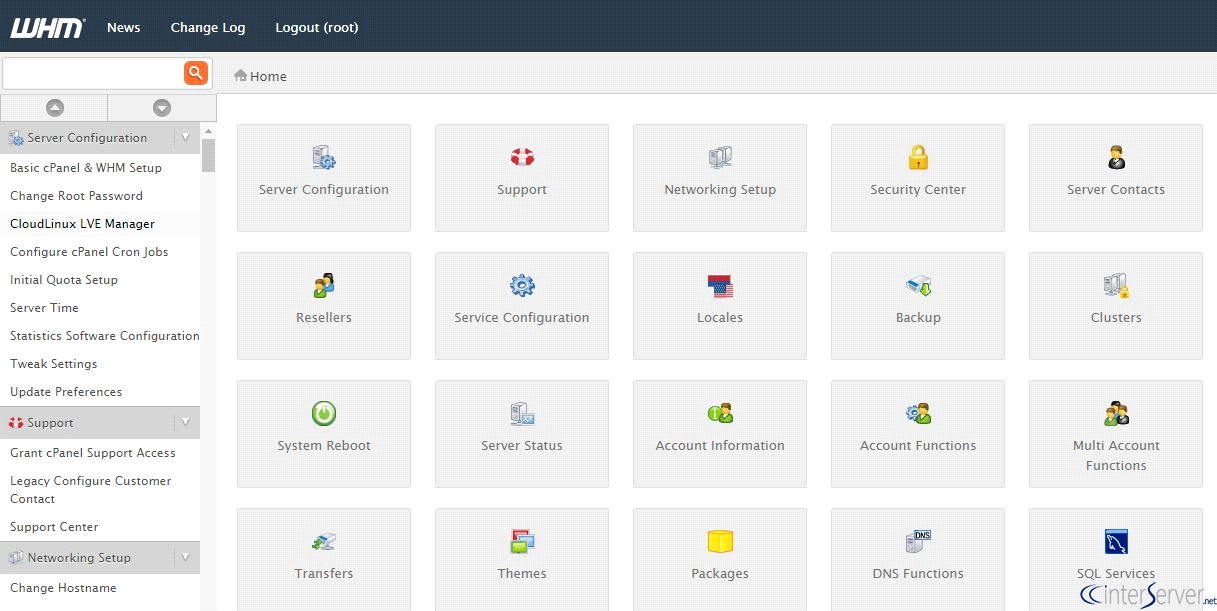
InterServer utilizes industry-standard control panels like cPanel and DirectAdmin, known for their extensive features that cater to a wide range of users from beginners to experienced administrators. The one-click script installations for numerous applications simplify the site setup process considerably. While comprehensive, the traditional structure of cPanel may present a steeper learning curve for non-technical users compared to Flywheel’s more guided environment.
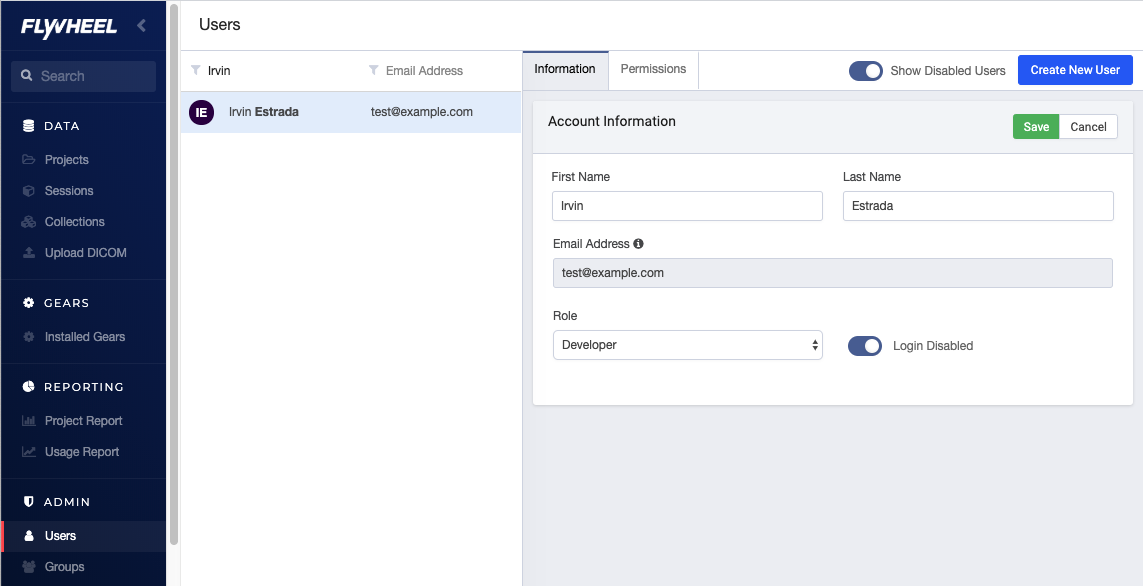
Both Flywheel and InterServer offer free migration services, making it easy for users to transfer existing sites. Flywheel enhances this with a dedicated migration dashboard, allowing users to submit, prioritize, and track their migration requests efficiently. InterServer’s free migration requires users to generate a full cPanel backup and ensures that any existing data on the new account will be overwritten. Flywheel’s approach appears more user-friendly, particularly for those managing multiple sites or needing personalized migration support.
The platforms provide extensive knowledge bases filled with guides, how-to articles, and instructional content. Flywheel offers a wide range of resources alongside 24/7 chat and phone support. InterServer also boasts a detailed help center with an intuitive search function and around-the-clock support via live chat, phone, and ticketing, ensuring comprehensive user support.
User management
accessibility.
Score Components:
- Role customization (40%): Flexibility in creating and defining user roles and
permissions. - Ease of management (30%): User interface and tools for managing users.
- Access control (20%): Effectiveness of access control measures for different user
levels. - Scalability (10%): Ability to manage a growing number of users efficiently.
 7.8
7.8
 7.4
7.4
🏆 Winner Flywheel: A sophisticated hosting provider offering extensive user management features.
Flywheel and InterServer each bring their own strengths to user management, though Flywheel stands out for its comprehensive controls and role-specific permissions. Flywheel offers fine-tuned management by allowing collaborators to perform almost all tasks that the site owner can, except for financial management and a few site-level functions. This includes capabilities such as accessing SFTP, modifying site settings, and managing the database. InterServer supports user management via popular control panels like cPanel, Plesk, and DirectAdmin, which typically offer user creation and permission settings. However, Flywheel’s detailed structure for roles and restrictions provides a more defined framework compared to InterServer’s broader, control panel-dependent approach.
Flywheel offers a user-friendly interface with a dedicated dashboard for managing collaborators, making it straightforward to add or remove users. Collaborators receive notifications via email, streamlining the onboarding process. InterServer relies on the interfaces of cPanel, Plesk, or DirectAdmin for user management, which provides flexibility but also means that the user experience can vary depending on which control panel is being used. The dedicated tools in Flywheel offer a more cohesive and intuitive experience for managing collaborator roles.
Access control measures in Flywheel are designed to be both effective and scalable. Collaborators have access to almost all site functions without compromising sensitive areas like billing and site deletion, ensuring a balance between accessibility and security. Flywheel’s ability to support seamless login to the WordPress admin enhances productivity for collaborators. InterServer’s approach relies on control panel features, offering various levels of control through user accounts and permissions. This method is practical but can become cumbersome as the number of users grows, given the lack of a unifying user management interface like Flywheel’s.
Flywheel user roles table:
| Role | Description | Access highlights |
|---|---|---|
| Collaborator | A user who can manage most site features without billing access. | Full access to site management, SFTP, database, WP admin access with Seamless Login, add/remove collaborators. |
Customer support
hosting provider.
Score Components:
- Support communication channels (30%): Measures the variety of customer support types
provided (live chat, chatbot, email, phone, etc.) - Availability (20%): Assesses the availability hours for each channel, including 24/7
support options. - Technical support quality (30%): Assesses whether the provider offers comprehensive
technical support, including hardware upgrades (e.g., HDD to SSD), software installations, and web
server configuration changes. - Enterprise support (20%): Checks if there are dedicated or priority support services
for enterprise-level customers.
 8.5
8.5
 9.0
9.0
🏆 Winner InterServer: Offers comprehensive customer support with multiple channels and dedicated service.
 |
 |
|
|---|---|---|
Phone support |
||
Live chat support |
||
Chatbot |
||
Email/ticket support |
||
Enterprise support (dedicated agent, priority support) |

Flywheel provides 24/7 chat support from WordPress experts, available all year round. They also offer phone support during business hours and email/ticket support. For personalized service, Flywheel offers a dedicated account manager and various resources like knowledgebase articles and eBooks. Their migration services for websites are free, and they provide a useful migration dashboard for tracking.
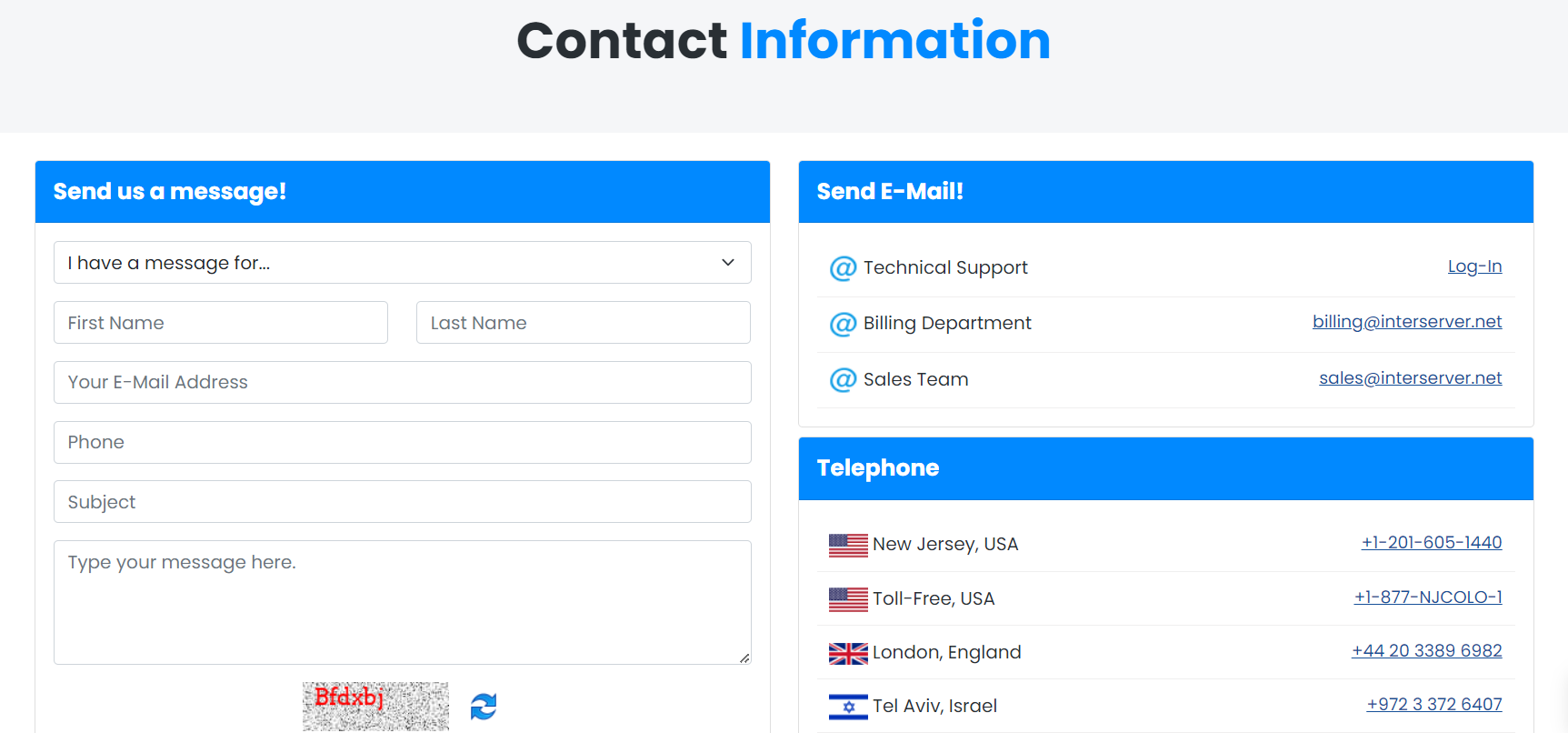
InterServer also provides uninterrupted 24/7 support, available via phone, chat, and ticket systems, ensuring quick responses and resolutions. The support team includes a dedicated managed support service for more tailored assistance. InterServer excels in its ease of use, providing user-friendly control panels, one-click installations, and unlimited email support with enhanced security features. Both hostings offer comprehensive solutions, but InterServer provides more extensive features, including local support staff and guaranteed uptime.
Flywheel vs Interserver: User feedback
Flywheel is highly regarded for its intuitive user interface, efficient WordPress management, and reliable speed and performance. Customers appreciate the ease of site migration, robust support, and included features like SSL and backups. However, some users highlight concerns over recent pricing changes, slower customer service response times, and issues with email limits and staging environments. Despite a few drawbacks, Flywheel is praised for its agency-oriented focus, making it a strong choice for professionals managing multiple client websites.
User feedback on the hosting provider paints a mixed picture. Many users commend the provider for its affordable, straightforward pricing and extensive features like unlimited storage and bandwidth, free SSL certificates, and a user-friendly control panel. The customer support, while generally prompt and effective, has garnered both praise and criticism, especially due to the lack of a dedicated phone support line and sometimes long live chat wait times. However, performance issues such as inconsistent server speed, downtime, and occasional loss of data have been frequent points of frustration for users.
Flywheel vs Interserver: FAQ
Which platform is better suited for hosting WordPress websites?
Flywheel is better suited for hosting WordPress websites, offering features like managed caching, advanced performance optimizations, and dedicated WordPress support. InterServer also provides strong WordPress hosting, but Flywheel’s specialized tools and infrastructure make it a more tailored solution for WordPress users.
Which hosting service offers better security features?
Flywheel offers robust security features including a Web Application Firewall (WAF), intelligent IP blocking, and free malware removal. InterServer provides the InterShield Security system with machine learning firewall and virus scanning. While both platforms offer solid security, Flywheel’s malware removal and plugin security alerts provide a slight edge.
Which hosting service offers more scalability options for growing websites?
Flywheel offers custom-built plans that allow seamless scaling without downtime, making it ideal for high-traffic sites. InterServer allows easy scaling to VPS or dedicated servers without downtime and maintains server utilization for growth. Both platforms provide reliable scalability options, but Flywheel stands out with its tailored solutions for high-traffic sites.
How do the providers handle email hosting and what features are included?
Flywheel does not offer email hosting services and recommends third-party solutions like Google Workspace. InterServer, however, includes email hosting with features like unlimited email accounts, spam filtering, and end-to-end encryption. This makes InterServer a more convenient choice for users who prefer an integrated email and web hosting solution.
What are the major differences in pricing and value between flywheel and interserver?
Flywheel’s plans are more expensive, starting at $13/month, offering features like managed WordPress hosting, advanced caching, and global data centers. InterServer’s pricing is more competitive, starting at $2.50/month for shared hosting with unlimited resources. Each platform offers distinct value, with Flywheel being more suited for specialized WordPress hosting and InterServer offering broader, cost-effective solutions.
The making of this blog
We followed a clear, step-by-step process to write and research this article.









